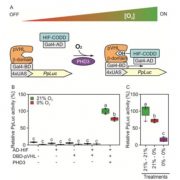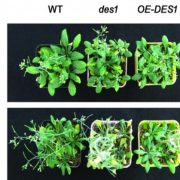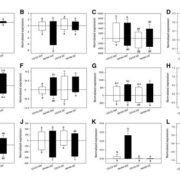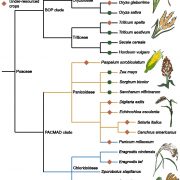Chloroplast signaling gates thermotolerance in Arabidopsis (Cell Reports)
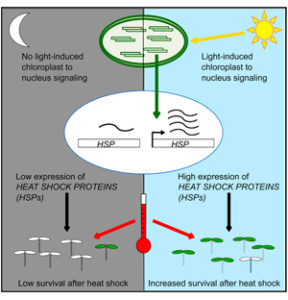 Plants are able to sense and respond to temperature changes in their environment. However, the mechanism by which high temperature is sensed and then relayed to affect the expression of heat shock transcription factors (HSFs) is unclear. Dickinson et al. demonstrated that Arabidopsis plants show diurnal variation in thermotolerance, which correlates with expression of the downstream targets of HSFs, the heat shock protein genes (HSPs). The variation was not a consequence of the circadian clock, but was instead linked to the light reactions of photosynthesis. Chemical alteration of the redox state of the plastoquinone (PQ) pool (a known retrograde signal) conferred changes in HSP70 expression, and indicated that a reduced PQ pool induces a morning peak in expression. This work demonstrates that photosynthetic electron transport can integrate light and temperature cues, and so helps explain the diurnal variation in thermotolerance noted in many plants species. (Summary by Mike Page) Cell Reports. 10.1016/j.celrep.2018.01.054
Plants are able to sense and respond to temperature changes in their environment. However, the mechanism by which high temperature is sensed and then relayed to affect the expression of heat shock transcription factors (HSFs) is unclear. Dickinson et al. demonstrated that Arabidopsis plants show diurnal variation in thermotolerance, which correlates with expression of the downstream targets of HSFs, the heat shock protein genes (HSPs). The variation was not a consequence of the circadian clock, but was instead linked to the light reactions of photosynthesis. Chemical alteration of the redox state of the plastoquinone (PQ) pool (a known retrograde signal) conferred changes in HSP70 expression, and indicated that a reduced PQ pool induces a morning peak in expression. This work demonstrates that photosynthetic electron transport can integrate light and temperature cues, and so helps explain the diurnal variation in thermotolerance noted in many plants species. (Summary by Mike Page) Cell Reports. 10.1016/j.celrep.2018.01.054


